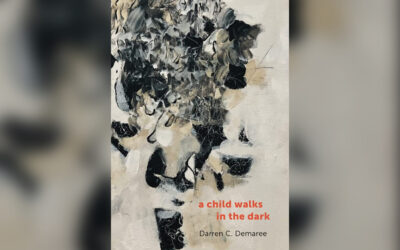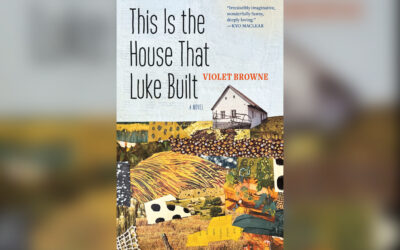Opinions
Review: Darren C. Demaree’s a child walks in the dark
The dedication to Darren C. Demaree’s latest poetry collection, a child walks in the dark, reads simply, “For my family – ” and family, particularly fatherhood, is woven into every single poem in the book. Each work is a retelling of something Demaree’s speaker tells his children, whether his daughter, his son, or both at the same time. It would be easy to resort to vague lessons or aphorisms, but the speaker brings a moving vulnerability to every message, and turns those fragments of parenthood over to the reader.
You Asked Cleo, and She Answered
After hounding Instagram followers, friends, acquaintances, Tinder matches, etc., I (Cleo) accumulated inquiries for the column. Now, I’m taking to the media and giving you advice!
Review: The Berry Pickers by Amanda Peters
In the blueberry fields of Maine in 1962, a four-year-old Mi’kmaq girl named Ruthie goes missing. Her family, who annually travels from Nova Scotia to Maine to harvest the berries, searches frantically for her, but no trace is found. Ruthie’s older brother Joe was the last to see her and is deeply affected for the rest of his life by her disappearance. As an adult man now suffering from terminal disease, Joe narrates much of the novel and describes how the family survives in the absence of Ruthie.
Review: This is the House that Luke Built by Violet Browne
This Is the House That Luke Built begins with Rose stepping through a wall of the house that her husband Luke was working on. He has died at sea, but through the house, Rose can temporarily see him again. Violet Browne draws on her own experience with loss and builds it into the foundations of Rose’s story as it unfolds. Despite the title and opening scene, much of the book is not about the titular house or Rose’s visits with Luke; rather, we stay close to Rose as she navigates the impact of the loss on herself and her three children, both in the immediate aftermath and over the years that follow.
Excitable Knowledge: Dromology and Illiteracy
Two months ago, I was put off by vaguely humanoid Stable Diffusion generated shapes that people were passing off as their own work, and unnerved by an exceptionally warm day in October. Today, I was disgusted by an ad promoting paid services for bot-written essays, and horrified by what felt like a summer day at the onset of winter. The dismal reality at hand is that things aren’t just moving fast anymore; the speed at which they speed up is itself speeding up. We lurch further, with every passing minute, into an unending and banal milieu of crises, and all we can do is watch as the death spiral etches towards a velocity we can no longer keep pace with. The long awaited man-made horrors are advancing beyond our comprehension as everything else stumbles and falls onto the asphalt.
Review: The Lost Time Accidents by Síle Englert
Amelia Earhart’s bones are calling out from the dark drawer they’ve been left in. Two satellites are whispering to each other in between stars. You are tired. You want to go home1. And it seems that home is the dust you were made from. All this and more exists in Síle Englert’s new poetry collection The Lost Time Accidents, released in early October. She moves fluidly through time and space, and throughout the collection her voice is marked by mourning for the parts of the world that are overlooked and things that are left behind.
Review: Lorde’s Solar Power
After a couple of years of absence from the music industry and public eye, Lorde has returned with her third full-length album, Solar Power. It’s starkly different from her previous work, and yet still deeply personal to Lorde herself – an important aspect of both her debut album, Pure Heroine, and its critically acclaimed successor, Melodrama. In Solar Power, Lorde reflects on environmental and natural themes, her distaste for celebrity culture, and her continued growing up since becoming a star.
Opinion: Data Brokers Are in The Mood for Love
Hungry, deep, and astoundingly preservative, the World Wide Web is a peat bog of private data. As the grade school Internet Safety Seminar saying goes, once it’s on the Internet, it’s there forever. While that doesn’t necessarily mean every piece of information you ever post online will come back into your life like a grotesque bog body, it does means that every time you post something online, you run the risk that it will come back into your life—like a grotesque bog body, tapping its detached femur on the drywall to the beat of YouTube comments made by a thirteen-year-old self.









